This post has been reblogged from a post by Naomi Reid, a nurse from Bisbane, Australia. Enjoy!
Quantitative
data, like statistics, are necessary to present the facts but they
grossly under-tell the story. I love what my supervisor Mirjam says
“Numbers don’t tell the whole story. Every number has a name, and every
name is a life, an individual with their own story to tell”. Every
individual has a heart and soul that longs to know how loved they are by
God. There are 7 billion people on this earth, yet God cares about the
one. I often find this mind boggling. He loves the individual person
that he uniquely created. There are many attempts to explain this but
one that I love is by Matthew. He compares God to a shepherd. He tells
us to imagine a shepherd who owns a 100 sheep and realises he’s lost one
of them. He doesn’t say oh who cares, 99 will do, I'll forget about the
one I lost. No, he goes searching for the one and rejoices over it when
he finds it. Our heavenly father cares about the one.
One
of the faces and stories behind the numbers belongs to a little two
year old girl, named Fitia. On our last day of screening in Mahajanga,
towards the end of the day, a desperate mother arrived with her daughter
who had a large infected burn wound to her chest. Fitia had been burnt
three months earlier when she accidentally pulled a pot of hot water
onto herself. Her parents took her to the doctor and bought antibiotic
ointment but could not afford anything more. Of course Fitia needed much
more than just antibiotic ointment to her badly burnt chest. Desperate,
they went to the traditional doctor who advised them to spit onto the
wound each day. Obviously, after three months of this, her burn was
badly infected and not healing. The likely outcome at best for this
little girl would have been a severe burn contracture to her neck or
sepsis from the infection.
One
of the nurses on the screening team, Nate was assessing Fitia. She was
in agony, so obviously unwell, and desperate for help. Nate knew what
needed to be done – surgical debridement, antibiotics and skin grafts.
However there was dilemma. As much as we would like to, as an
organisation, we can’t fix everything, we can’t help everyone. Therefore
there are strict criteria for us to follow to find patients that can be
helped within Mercy Ship’s scope of practice. The scope of plastic
surgery on the ship excludes recent burns that have occurred within six
months or operating on infected wounds. There are just far more
complications and a lot more risk involved when these patients. But
trying to explain this and say no to Fitia and her mother didn’t seem
right. So Mirjam called the ship, to ask hospital leadership for an
exemption for this patient, and with wisdom and mercy a decision was
made to accept and help this patient. She was then flown back with us on
our MAF flight from Mahajanga to Tamatave. A terrified little girl sat
on the back of the plane with her anxious mother who was willing to
trust us.
Fitia
spent almost three months receiving both inpatient care on-board the
ship and outpatient care. She received good nutrition, antibiotics, and
surgeries to clean her burn and apply skin grafts and she has been loved
and cared for in a way that is unique to this incredible hospital. She
arrived on board the ship so fearful, crying into her mother’s arms and
hiding whenever anyone came close. But it wasn’t long before she was
laughing and playing with the nurses and other children on the ward.
Two
weeks ago she was discharged home. No longer is she in agony, so sick
and desperate for relief from her infected burns. Instead she is a happy
two year old; her wounds have healed, she is healthy and her future is
so so bright.
Sometimes it’s so clear to see, other times it’s almost impossible*, but I know that it’s true;
God cares about the one.
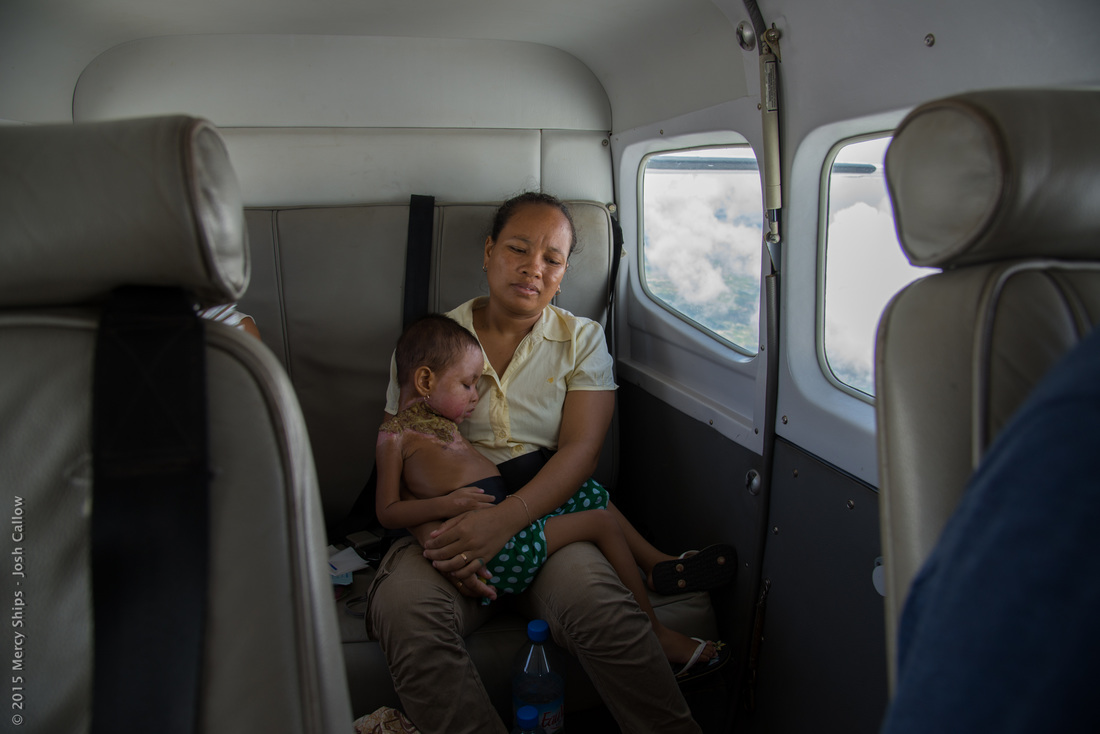
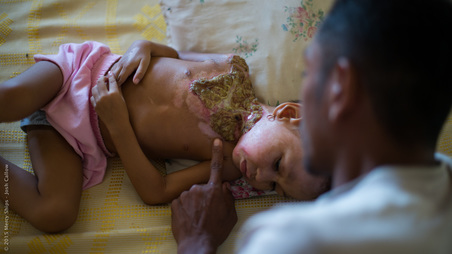
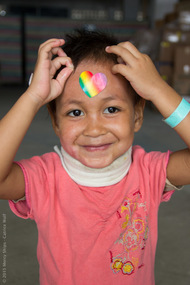
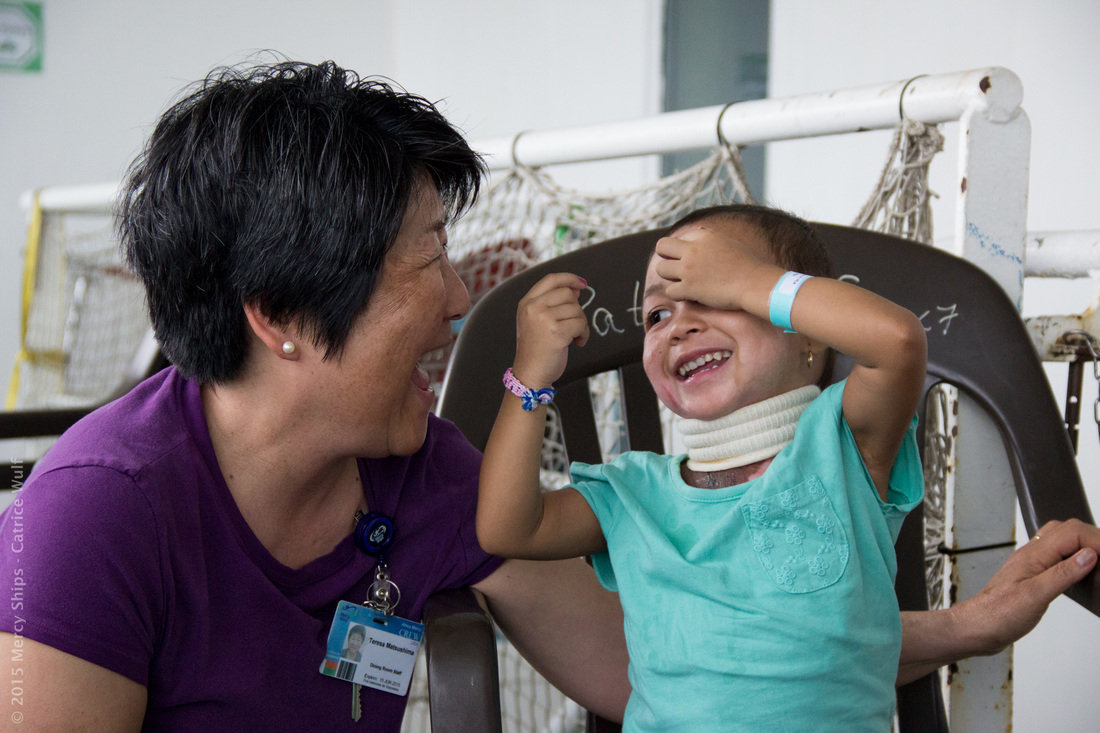
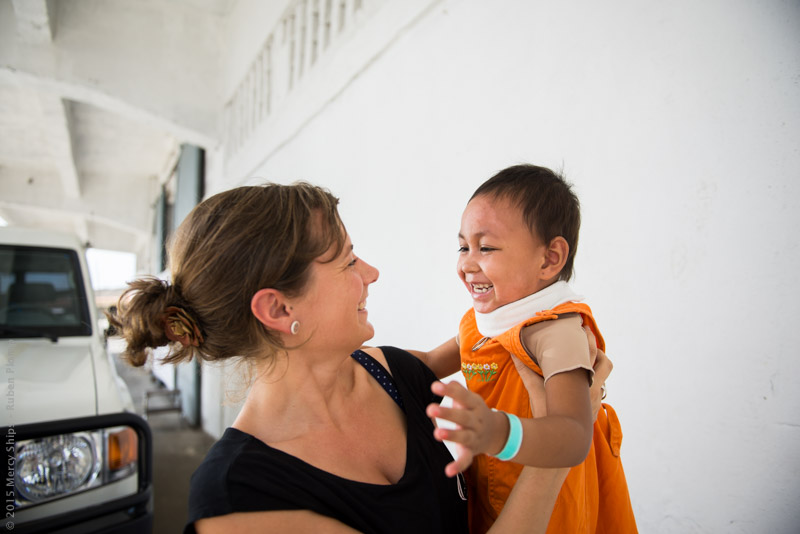
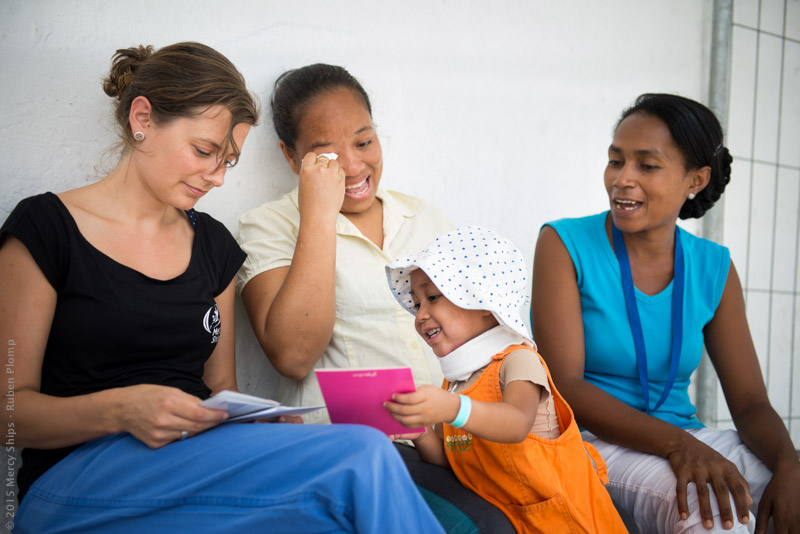
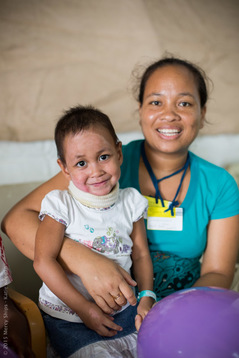
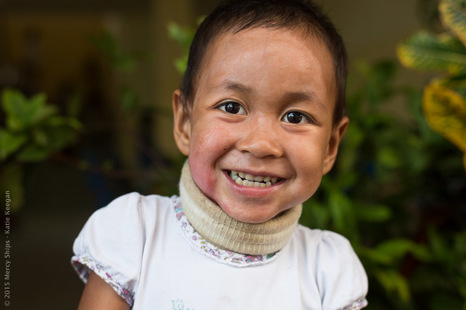
No comments:
Post a Comment